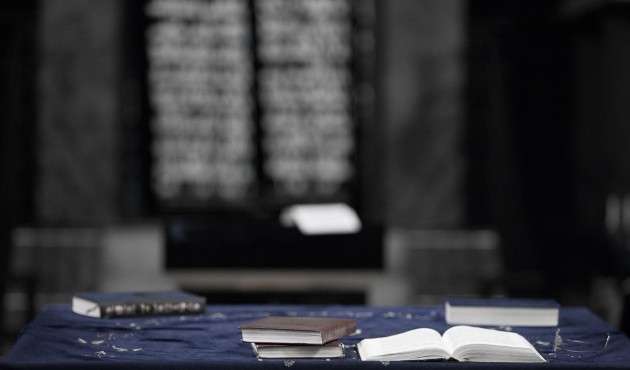
by Elana Sztokman
Stop Asking “Why Are You Still Orthodox?”
 Recently, at the #HUC #HealingHatred conference, Shira ben Sasson Furstenburg gave a talk about the connection between religious extremism and sexism. She talked about how pretty much all major religions equate “more religious” with notions of control over women’s bodies. This is an idea that I talk and write about a lot, so I listened intently.
Recently, at the #HUC #HealingHatred conference, Shira ben Sasson Furstenburg gave a talk about the connection between religious extremism and sexism. She talked about how pretty much all major religions equate “more religious” with notions of control over women’s bodies. This is an idea that I talk and write about a lot, so I listened intently.
During the question and answer period, the very first question was addressed at her: Why are you then still Orthodox?
Before she responded, Shira said, “You realize that you are asking a very personal question, even though this panel was not a personal one.” She then proceeded to answer anyway, talking about the importance of fighting for change from “within”—a comment that drew applause.
So, the first thing I want to say is that I have gotten this question all the time. Everywhere, always. Even though I have never heard a man get asked such personal questions at conferences. When men talk, even when they are just spouting their own thoughts or feelings with no evidence, they are assumed to be authorities speaking about abstract ideas with impunity. Women, on the other hand, are always assumed to be *just* talking about our feelings, no matter how much evidence or scholarship we bring. It is always about us. We are always on display. Our lives, our decisions, our choices, our bodies—they are all considered fodder for critique and analysis. Men have the privilege of being protected by assumptions of status and authority. So there is that.
The second thing I want to say is that even though I am not Orthodox anymore and haven’t been for a while, I will continue to defend to the ends of the earth women’s decisions to stay Orthodox and do the “fight from within” thing. Because there are lots of really big reasons why women stay in places that are not entirely good for them, like Orthodox synagogues. Shuls are gateways to community belonging and connection. Especially in Orthodoxy, your entire life takes place through the framework of shul. Your big life moments like birth, death, marriage, and coming of age—they all take place in the context of community. You go every week to keep connected, to keep your friends, to feel like you belong, to know who you are. It’s a lot, and it’s meaningful. I mean, in my research on men, I found that many men—not just women—go to shul more to see people than to pray. We all know this. The kiddush is the most important part of shul for lots and lots of people. And so telling women to give all that up is insensitive and, frankly, obnoxious. Giving up Orthodoxy often means disconnecting from everything you consider important in your social life—often from family, from friends, and from community. Sure, the patriarchy sucks. But for many people, not being able to lead services or to count feel like insignificant issues compared to the comfort of knowing that you belong.
On the other hand, for many women, belonging isn’t enough when we no longer identify with the core value system—when we think that the core value system is corrupt. So that’s why some of us leave. But I will never make the argument that this is an easy or simple choice.
I would be very interested to hear from those of you out there who confront this dilemma between staying within a sexist, disempowering, but comfortable Orthodoxy versus finding alternatives. How do you navigate this?
If this is relevant to you and you feel like sharing, I’d love to hear in the comments. No judgments.
The views and opinions expressed in this article are the author’s own and do not necessarily reflect those of Lilith Magazine.